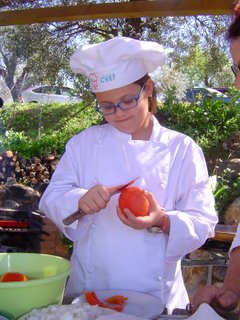A dolphin in danger or distress will emit a short, sharp, high pitched whistle that acts as an SOS. Its companions will nose it to the surface if it needs air, and there are cases of dolphins being supported in this way for four days.
So dolphins have the ability to show compassion and feeling.
They also have large brains, around the size of man’s. The problem dolphins have is that they do not have vocal cords. This means that they can not talk. This is important because it means that they can not talk back! Dolphins have a vocabulary of at least thirty two sounds. These include clicks, whistle, barks, rasps, squeals and groans.
A ten year old human will make very similar sounds when they are encouraged to work through an eleven plus exercise when they would rather be doing something else.
Parent: “I know you want to watch the end of the film. I know there are only fifteen minutes left to go. I know you did extra yesterday, but don’t you think it is time for some extra work?”
Dolphin: “Bark, bark!”
11+ Candidate: “Oh Dad. Bark, bark! Oh please, Dad. I just want to see the end of the film.”
Parent: “We had an agreement. You said that you would do some work five days a week. You said that even if you had done something extra on one day you would still do some work every day. Now I have been patient with you. I have explained my position. Please would you reconsider and do some work?”
Dolphin: “Squeal and Groan.”
11+ Candidate: “Yes but. Squeal, squeal. Groan, groan.”
Parent: “We worked out yesterday what you were going to do today. You know exactly what to do. Please do not try my patience. You have done very well so far for the whole of this month. I have kept to my side of the agreement. I have never done any rasps and whistles. So please keep your side of the bargain.”
Dolphin: “Rasp, rasp, rasp!”
11+ Candidate: “Oh, all right then. I will just this time. But you have made me miss the end of the film. I think it is unfair. Rasp. Rasp. Any way, I am off to my room.”
Parent: “Thank you dear. I knew you would do your work in the end. You really are a very good rasp rasp. I am very proud of you. You really are growing up and doing your best.”
The dolphin, naturally a friendly and sympathetic friend of the whole world, really has the last word with a softly spoken and gently whispered, “Click, click, click!”




